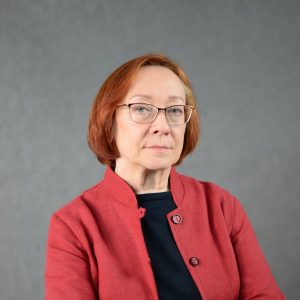
prof. UAM dr hab. Danuta Penkala-Gawęcka
Professor Emerita, Department of Cultural Anthropology
Room: 2.26
Phone:
E-mail: danagaw@amu.edu.pl
Office hours:
Shamans, Islam and the State Medical Policy in Post-Soviet Kazakhstan and Kyrgyzstan, w: The Shamaness in Asia. Gender, Religion and the State, red. Davide Torri, Sophie Roche, London-New York: Routledge 2020, ISBN: 9780367279325, 103-132: https://www.routledge.com/The-Shamaness-in-Asia-Gender-Religion-and-the-State/Torri-Roche/p/book/9780367279325
Legitimacy and Authority of Complementary Medicine Practitioners in Post-Soviet Kyrgyzstan. The Role and Use of Tradition, “Rocznik Orientalistyczny” 70: 1, 2017, p. 20-32. http://journals.pan.pl/dlibra/publication/117010/edition/101716/content
Antropologia medyczna w działaniu. Na przykładzie projektu “Cultural Contexts of Health” realizowanego przez Światową Organizację Zdrowia [Medical Anthropology in Action. On the Example of the Project ”Cultural Contexts of Health” Implemented by WHO]. In: Colloquia Anthropologica II, ed. J. Jasionowska, K. Kaniowska, Warszawa: Oficyna Naukowa, 2017, s. 147-165.
The Role of Women in Health-seeking Strategies and Practices in Post-Soviet Kyrgyzstan. In: The Family in Central Asia. New Perspectives, ed. S. Roche, Islamkundliche Untersuchungen Bd 332, Berlin: Klaus Schwarz Verlag, 2017, p. 184-204.
Risky Encounters with Doctors? Medical Diversity and Health-related Strategies of the Inhabitants of Bishkek, Kyrgyzstan, “Anthropology and Medicine” 23: 2, 2016, s. 135-154. DOI: 10.1080/13648470.2016.1180582.
The Way of the Shaman and the Revival of Spiritual Healing in Post-Soviet Kazakhstan and
Kyrgyzstan, „Shaman. Journal of the International Society for Shamanistic Research” 22: 1-2, 2014, p. 35-59. http://hdl.handle.net/10593/11369
Niepewność, ryzyko, zaufanie. System opieki medycznej i jego reformy w postsowieckim Kirgistanie a strategie zdrowotne mieszkańców Biszkeku [Uncertainty, Risk, and Trust. Reforms of Healthcare System in Post-Soviet Kyrgyzstan and Health-seeking Strategies of the Inhabitants of Bishkek], „Etnografia Polska” 58: 1-2, 2014, p. 135-157. http://rcin.org.pl/Content/59892/WA308_77175_P327_niepewnosc-ryzyko_I.pdf
Mentally Ill or Chosen by Spirits? ’Shamanic Illness’ and the Revival of Kazakh Traditional Medicine in Post-Soviet Kazakhstan, “Central Asian Survey” 32: 1, 2013, p. 37-51. DOI: 10.1080/02634937.2013.771872. http://hdl.handle.net/10593/14276
„Maladies populaires” et médicine complémentaire en Cachoubie, “Ethnologie française” 40: 2, 2010, 295-304. DOI: 10.3917/ethn.102.0295. https://www.cairn.info/revue-ethnologie-francaise-2010-2-page-295.htm
Antropologia medyczna dzisiaj: kontynuacje, nowe nurty, perspektywy badawcze [Medical Anthropology Today: Continuities, New Directions, Research Perspectives]. In: Socjologia i antropologia medycyny w działaniu [Medical Sociology and Medical Anthropology in Action], ed. W. Piątkowski, B. Płonka-Syroka, Wrocław: Oficyna Wydawnicza Arboretum, 2008, p. 219-241.
Medycyna komplementarna w Kazachstanie. Siła tradycji i presja globalizacji [Complementary Medicine in Kazakhstan. The Force of Tradition and Pressure of Globalisation], Seria Etnologia i Antropologia Kulturowa nr 23, Poznań: Wydawnictwo Naukowe UAM, 2006.
Korean Medicine in Kazakhstan: Ideas, Practices and Patients, “Anthropology and Medicine” 9: 3, 2002, p. 315-336. DOI: 10.1080/13648470216338. https://www.academia.edu/2383152/Korean_medicine_in_Kazakhstan_ideas_practices_and_patients
Wybrańcy duchów, czyli jak zostać szamanem. Na przykładzie ujgurskiej szamanki z Kazachstanu [Chosen by Spirits or How to Become a Shaman. The Example of an Uighur Shaman Woman from Kazakhstan], “Lud” 85, 2001, p. 153-191. http://hdl.handle.net/10593/11368
Medycyna tradycyjna w Afganistanie i jej przeobrażenia [Traditional Medicine in Poland and Its Transformations], Prace Etnologiczne vol. 12, Wrocław: Polskie Towarzystwo Ludoznawcze, 1988.
Medical Pluralism in Afghanistan: Conflict Between, Coexistence or Integration of Various Medical Systems? In: Poland at the 12th Congress of Anthropological and Ethnological Sciences, ed. S. Szynkiewicz, Wrocław: Zakład Narodowy im. Ossolińskich, 1988, p. 235-247.
Health, Illness and Healing in Contemporary Kyrgyzstan. Concepts of Health and Illness, and Healthcare-Seeking Strategies of the Kyrgyz in the Conditions of the Urban Medical Pluralism.
Funded by the National Centre of Science, 2011-2014.
Organisation and leadership of the Medical Anthropology Research Group at the Department of Ethnology and Cultural Anthropology, Adam Mickiewicz University in Poznań (since 2017).
Membership in the expert group invited to the international project „Cultural Contexts of Health and Well-Being”, World Health Organization, Regional Office for Europe (2015-2019).
http://www.euro.who.int/en/data-and-evidence/cultural-contexts-of-health
Membership in the Follow-Up Committee of the international project CREACTIVE (Collaborative REsearch on ACute Traumatic brain Injury in intensiVe care medicine in Europe) (2013-1018). The project is funded by the European Commission under the Seventh Framework Programme. It covers also socio-cultural aspects of the rehabilitation from TBI.
http://creactive.marionegri.it/
Editorship of the journal “Lud” (“People”) – 2007-2016.
Project Ethnological Dictionary (ed. 1987) – participation in preparing and editing of the first Polish dictionary of ethnological and anthropological terms, under the direction of Zofia Staszczak (1980-1985).
Ethnological Expedition to Afghanistan (1976) – participation in organising the expedition (1973-1976) and conducting ethnographic fieldwork in central and northern Afghanistan.
Atlas of Language and Folk Culture of Greater Poland Region – participation in the research group directed by Zenon Sobierajski (Department of Polish Language, Adam Mickiewicz University) and Józef Burszta (Chair of Ethnography, Adam Mickiewicz University) (1972-1982).
https://amu.academia.edu/DanutaPenkalaGawecka
https://www.researchgate.net/profile/Danuta_Penkala-Gawecka

